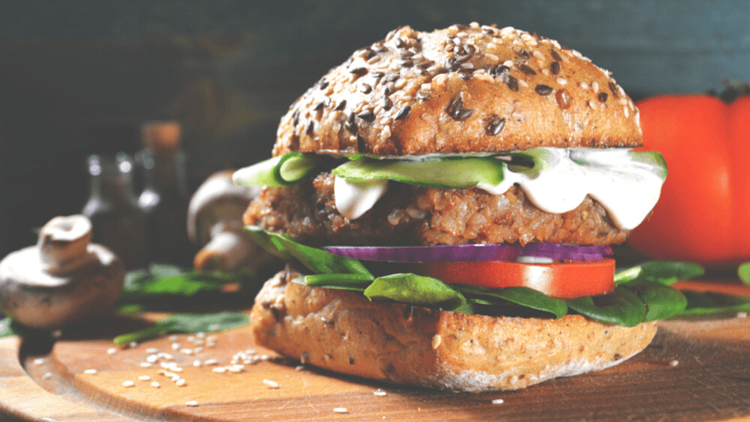8 misconceptions about veganism
When it comes to veganism, you probably would have heard a couple of rumors and myths pertaining to the lifestyle. If you’re a vegan, you may also have found it hard to relay the facts or give answers to those who just don’t understand veganism. Or you might simply be curious about the vegan lifestyle and are open to looking past the stereotypes. We’ve compiled a list of common misconceptions about veganism to help debunk some of those pesky myths..
It isn’t ‘just a phase‘
We’ve all heard or said this at least once in our lives - whether it be about the way we choose to dress as a teen or exploring a new hobby. However, some decisions we make in life are way more fundamental, and can have a huge impact on our lifestyle choices and beliefs.
This is often something we see within diet culture whereby an individual gives it their best shot for a month or two, but ultimately it peters out. Veganism is more than a way of eating - it is a lifestyle choice with a positive, moral impact on the world around us. It is a conscious decision to live a healthier, kinder and more sustainable life. It impacts everything we do, and is a big shift from what we’re used to. So for veganism to be seen as ‘just a phase’ undermines the dedication and willingness to change for the greater good.
Vegan doesn’t always mean healthy
Despite the common stereotype, it’s not all falafel and salads. In recent years, veganism has sky-rocketed in popularity and we’re seeing tonnes of new meat and dairy substitutes produced every year.
And whilst you can live an ‘idyllic’ healthy vegan lifestyle filled with veggies and all the nutrients you need, it’s hard to not be tempted by some of the slightly less healthy substitutes on the shelves. You can now pop into most fast-food restaurants and find something cheap and vegan on the menu. This is a major breakthrough for making veganism more accessible for everyone, but like with any diet, moderation is still key!
It’s not always more expensive
Another common fallacy is that veganism is often perceived to be expensive in comparison to meat and dairy diets.
But in its purest form, living on vegetables, legumes (such as beans, chickpeas and lentils) and carbohydrates (such as rice, bread and pasta) is one of the cheapest and healthiest ways to eat. Madeleine Olivia has a whole YouTube series on being a ‘Budget Vegan’ illustrating how different supermarkets in the UK compare in price. At times she manages to keep her weekly food shopping below £15!
Limiting replacement products and buying them when they’re on offer can further reduce grocery expenditure. When comparing this to a meat diet, you’ll quickly see how eating vegan reduces cost.
We’re not all hippies
Vegans are often portrayed in the media as weak, self-righteous, tree-hugging hippies. The truth is people from all backgrounds and walks of life have and are adopting a vegan lifestyle. From ordinary citizens to A-list celebrities - more people are becoming vocal about their dietary and lifestyle choices.
You don’t have to be a hippie to be a vegan, and you don’t have to be a vegan to be a hippie.
Plants don’t have feelings
If you’re debating a non-vegan over the vegan lifestyle, you are bound to be presented with the ‘but plants have feelings too’ argument.
Contrary to this belief, plants do not have central nervous systems or brains, and therefore do not feel pain in the same way human and non-human animals do. They do not let out cries or lick wounds in response to pain. There’s a reason why you can take a child apple picking, but hesitate to take him/her into a slaughterhouse.
Soy products are less impactful on the planet
The production of soy products and growing soybeans have an undeniable impact on the planet. But what a lot of people don’t realise is that 70-75% of soy is grown for the animal agriculture industry. Only 7-12% of soy production is used for direct human consumption.
Should the global demand for animal products decrease, it will cause a significant reduction in soy crops needed to feed livestock - making soy production less harmful to our planet.
It’s not as hard as you think
Making a transition from one lifestyle to another isn’t something to be taken lightly. Even so, going vegan is not as hard as you might think. ‘’ I’d miss cheese too much’’ or ‘’I could go vegan but…’’ are typical responses vegans have to endure. But if you’re genuinely open to change and you’re serious about wanting to make a sustainable impact on the world around you, the benefits of your choices will far outweigh the fear of finding it difficult to adjust to a new lifestyle.
Taking simple steps towards cutting out meat and dairy on a weekly basis, learning more about the harmful impacts of the agriculture industry and making easy swaps on a daily basis (such as soya milk in your tea!) can help break down old habits and enable us to start forming new, less damaging ones.
Being vegan doesn’t mean we don’t want substitutes
Vegan meat alternatives are often labelled with the same names as common animal ingredients such as ‘bacon’ or ‘sausages’ or ‘egg’. This can cause confusion for some as the point of veganism is to avoid animal products. It’s important to understand that the majority of vegans didn’t abstain from animal products because we didn’t like the taste or texture of it. We simply don’t want the harm, violence and death that comes with it.
If we can still enjoy the same flavours and textures in meat alternatives without the exploitation and cruelty, then why not?
If you’re interested in learning more about meat alternatives check out healthy or unhealthy? Meat-free alternatives explained.
